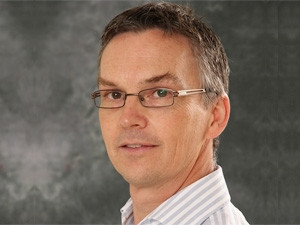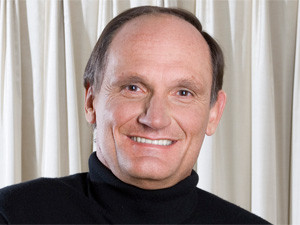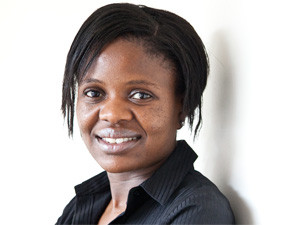
Cell C is investing heavily in its network in a bid to boost is subscriber base to 20% of the market by the end of 2017 and is investing R4.7 billion, most of which will go into growing capacity and customers.
Yesterday, the group said its majority shareholder - Ogar Telecom - had earmarked $350 million - or R3.5 billion - as an additional investment into the company, while the operator also secured a R2.2 million loan. The equity boost follows last year's $200 million injection, and a further significant investment is scheduled for 2014.
After rolling over some of its debt, the cellular company has R4.7 billion to pump into growing its network and gaining customers, and plans to almost double its installed tower base. Cell C, which launched in 2001, has grown to 11.5 million customers despite complaints about a lack of connectivity.
Customers have been complaining about call and Internet connectivity quality across all networks, but Cell C has a bigger imperative to improve quality because it is playing subscriber catch up with its two larger competitors.
However, Cell C, which sparked a price war last year with its 99c tariff, argues that some of the customer dissatisfaction with coverage is not its fault, but rather that of roaming partner Vodacom.
Boosting infrastructure
CEO Alan Knott-Craig says the bulk of the investment is going into network coverage expansion, especially in Johannesburg, and the group has seen its traffic double in the past 12 months. He says the current infrastructure will not be able to cope with increased demand.
In a saturated market, the only way to grow is to by taking away customers, says Knott-Craig. Cell C has set itself the target of 14 million subscribers by the end of next year and Knott-Craig says it wants 20% of the total market, which it has planned for in its five-year business strategy, which takes it to end-2017. "We've got a way to go."
Cell C has added 2.5 million subscribers to its base since last January, when Knott-Craig took over the helm. He says the company wants to add between two million and 2.5 million subscribers a year, which means a million gross subscribers a month.

However, Knott-Craig notes Cell C relies on a roaming deal with Vodacom, which should ensure a seamless handover from tower to tower, but this has not always happened, leading to dropped calls. He says the operator has taken up the matter with the Independent Communications Authority of SA (ICASA).
Knott-Craig says ICASA is obliged to step in if consumers have a poor experience caused by a lack of good faith in network sharing. He says the issue has been taken up with Vodacom and, while SA's largest operator can resolve it, it will not.
Vodacom points out that the way handover is being done today is exactly the same way it has been done for the last 12 years. "The quality of service provided to all our customers, including Cell C, is of the highest importance to us. This is why we've made huge investments in our infrastructure with over R7 billion in South Africa over the past year and over R28 billion in the past five years."
SA's largest operator adds that Cell C is only partially using its network and it is not responsible for Cell C's entire network experience.
Cell C has to build more towers, says Knott-Craig. He notes the company has 4 000 towers covering 97% of SA's population, but as traffic increases, call quality drops. Knott-Craig says "we should have our act together" before the end of the year.
Yet, a network cannot be built overnight, which was the rationale for the roaming deal in the first place, says Knott-Craig. He says the company often switches off its own stations so there are no handover issues, but this is not in the interest of stakeholders.
Coming soon
Cell C needs a minimum of between 2 000 and 3 000 more towers, which includes coverage at shopping malls, says Knott-Craig.
The towers will be a combination of 2G and 3G as Cell C has taken a "different line of attack" to long-term evolution (LTE), says Knott-Craig. He expects government to soon announce a national broadband network and license it for wholesale.

Knott-Craig says it would be "silly" to invest in LTE when there is no equipment available, and the operator needs a policy to guide it. Cell C has been trialling the latest technology on a commercial basis.
The investment will mostly go into the network, working capital needs and into supporting the growth of its subscriber base, says CFO Robert Pasley.
Shareholder on board
Pasley explains that the injection is partly being used to refinance a loan, which leaves Cell C with R4.7 billion to invest. He notes that growing the network and the subscriber base requires a substantial amount of cash.
Cell C is 75%-owned by Saudi Oger, through Dubai-based Oger Telecom and Lanun Securities, and 25%-owned by CellSAf, a black empowerment company. Pasley explains that the way the investment has been structured means the empowerment stake will not be diluted.
Pasley says Cell C has a "fully-fledged" business plan, which the banks have bought into and shareholders support. He says regulatory change will help and also has a "significant" impact on the future of the business.
Wait and see
The funding has been earmarked "for now", but a further injection may follow next year, says Knott-Craig. He notes this is contingent on the regulatory environment becoming more competitive and investor-friendly, but adds that government recognises the need to invite foreign investment into the telecoms sector.
Cell C has welcomed ICASA's decision to review market remedies under the Call Termination Regulations, which forms part of its cost to communicate programme. "Cell C needs aggressive and proactive regulatory support to continue its drive to reduce the cost to communicate in South Africa and remain sustainable in the process," says Knott-Craig.
Cell C notes ICASA has committed to focusing on specific remedies and not a wide review. "There are a number of possible remedies, of which the most important are aggressive and sustained asymmetry, mandatory flat rates and lower mobile termination rates for operators with significant market power," it says in a statement.
Pasley adds the operator is going up against entrenched competitors and this takes a long time and deep pockets.
Although Cell C's debt will look better through the investment, it has not improved much in about the past three years, says Pasley. About three years ago, Cell C slashed its debt ratio through a shareholder recapitalisation programme that effectively saw its debt at the time halved, from R13 billion to R6.6 billion.
Imperative investment
Ovum analyst Richard Hurst says Cell C is investing to get more customers, and does not have a choice as it must invest to be a significant player. He notes it seems the investors like Cell C's story and it will be important for Cell C to sustain the price war down the line. "There must be something that they are doing right."
Hurst says Cell C needs to grow its coverage, but acquiring subscribers comes at a cost. At the same time, it needs to invest in its network to grow its base, which requires more subscriber revenue. "It's a vicious balancing act."
Hurst says it needs to roll out to get customers as quality of service is important. Without quality service, people will join and then churn away and are harder to get back, he says. "It can be the kiss of death."
IDC analyst Spiwe Chireka says Cell C needs to spend truckloads before it can make truckloads, and waiting for subscribers to provide the cash is not an option. She says there are many complaints about quality of service across the board, but Cell C has a greater imperative than its larger peers to improve connectivity.
Chireka explains quality is playing an essential role in gaining and keeping subscribers, and in getting them to up their monthly spend.
Share